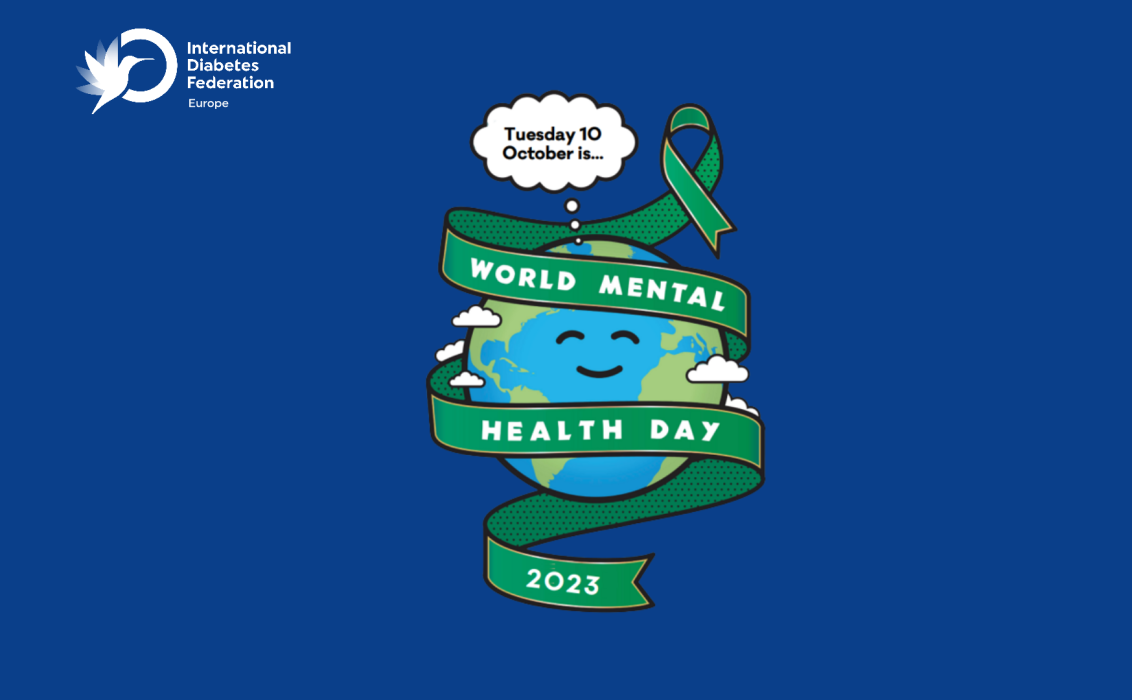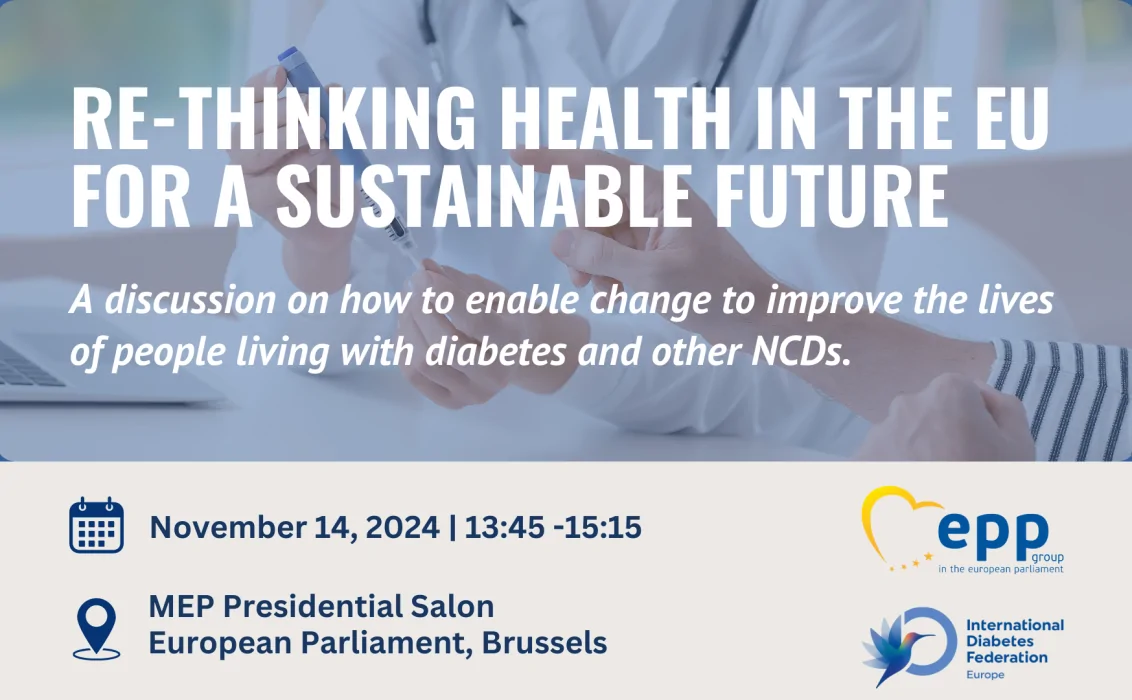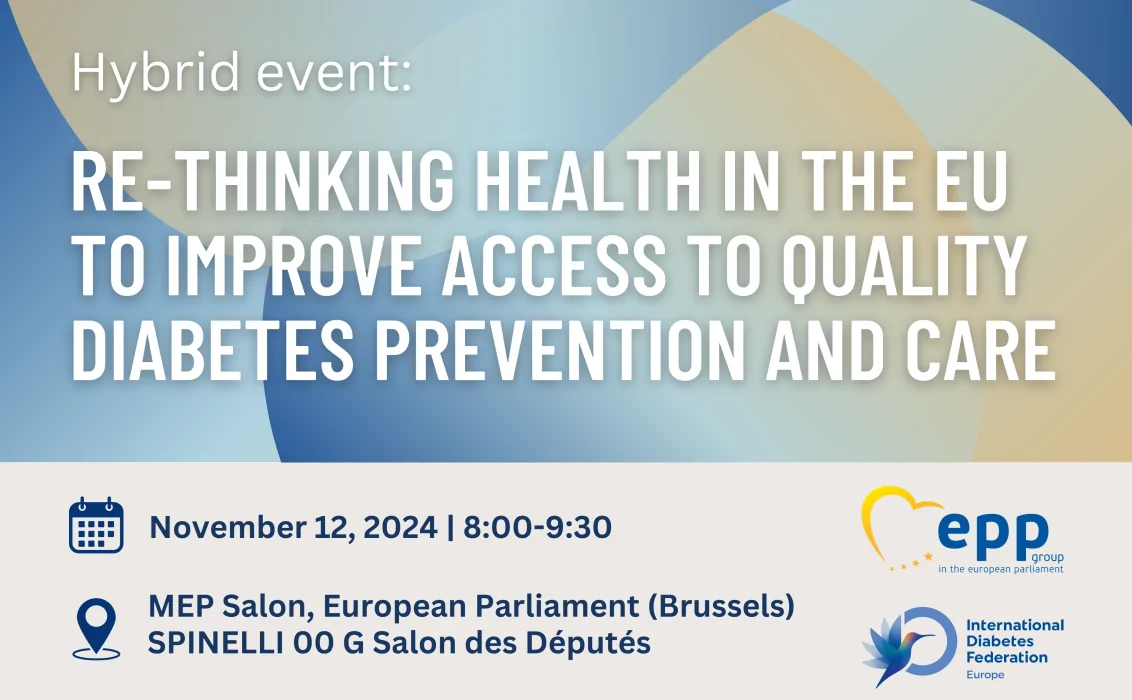The World Health Organization (WHO) celebrates World Mental Health Day on October 10 every year. This year, we are reminded that mental health is a universal human right and is an inherent part of our well-being.
That mental health is a universal human right cannot be overstated, especially when considering the millions of people living with diabetes (PwD) worldwide. Diabetes is a complex and progressive condition that requires round-the-clock self-management throughout one’s life. The burden it places on mental health is substantial. PwD may often find themselves grappling with heightened levels of distress, anxiety and depression. These emotional challenges do not only disrupt their daily lives and relationships but can also hinder their ability to manage their diabetes effectively, resulting in poorer physical health outcomes.
Research has shown that PwD are two to three times more likely to experience depression compared to those without the condition. Even more concerning is the fact that only 25-50% of PwD who have depression are diagnosed and receive treatment. This alarming figure underscores the urgent need to address the mental health needs of PwD.
Diabetes-Mental Health: A two-way relationship
Many studies show that people with mental conditions have an increased risk of developing NCDs and that the impact of co-existing NCDs, depression and other psychological morbidities on one’s overall health may lead to worse management of the physical condition, greater risk of complications and higher mortality rates.
For example, a recent meta-analysis suggested that adults living with depression have a 37% higher risk of developing Type 2 diabetes. At the same time, PwD who also live with mental health conditions also find it harder to manage their physical condition compared to those without mental illness, as optimal diabetes management requires stringent self-monitoring and lifestyle modifications.
In another example of this two-way relationship, diabetes can increase the risk of psychiatric morbidity and suicide, especially in young people transitioning to adult services. Overall, comorbid diabetes and depression are a significant public health burden and have a major impact on the quality of life of individuals as the consequences of both diseases are worsened by each other.
Developments at the EU level
Perhaps not surprisingly, due to the stigma attached to it, mental health has long been a neglected public health issue and has only very recently been put back at the top of the political agenda. Public policy now seems to recognise the obvious interconnection between physical and mental health and be moving slowly towards a more holistic approach.
At European level, one of the first steps towards recognising mental health as a public health priority was taken with the publication in June 2023 of “A Comprehensive Approach To Mental Health” by the European Commission (EC). This proposal consists of 20 flagship initiatives and €1.23 billion in European Union (EU) funding from different financial instruments. It seeks to support Member States in implementing or improving public health strategies that mainstream mental health across policy areas. With its new initiative, the EC wants to put mental health on par with physical health and to ensure a new, cross-sectoral approach to mental health issues. The initiative is structured around three guiding principles: having access to adequate and effective prevention; having access to high-quality and affordable mental healthcare and treatment; being able to reintegrate into society after recovery.
This initiative was followed by work within the SANT subcommittee on public health at the European Parliament with one hearing on mental health among youth, and one own-initiative report (INI Report) on Mental Health. The aim of the report is to take the EU’s actions in the field of public health a stage further by setting out guidelines for action, such as addressing mental health determinants, strengthening mental health systems and boosting research and innovation.
The EU operates on a system of rotating presidencies every six months, with each new presidency given the opportunity to present its priorities for action. The current presidency, Spain, made mental health a priority, stating that mental health efforts will focus on making further progress in the integration of mental health in all policies, in access to healthcare for people living with mental health problems, especially the most vulnerable groups, and in the development of support tools to deal with critical situations.
What is needed?
According to the World Health Organization (WHO) Constitution, “the enjoyment of the highest attainable standard of health is one of the most fundamental rights of every human being without distinction of race, religion, political belief, economic or social condition”. In using the word health, it is important to bear in mind that health is the combination of a physical and mental state. The right to health is one of the most fundamental human rights, and every human being should be able to see this right guaranteed, assured and protected. To ensure that mental health is a fundamental human right, it is essential to step up efforts and remove obstacles.
- Particular focus should be placed on tackling stigma and discrimination associated with both diabetes and mental health conditions and building more resilient and inclusive healthcare systems and societies.
- Public policies and stakeholders must recognise the scale and urgency of targeting the mental health of all people living with chronic diseases such as diabetes and the two-way relationship between the conditions; address stigma and discrimination; ensure social inclusion for both groups and acknowledge people living with chronic diseases such as diabetes as a high-risk group.
- Most of all, there is a need to reshape our healthcare systems to provide integrated and personalised care to people and ensure access to peer support. Integrated care provides coordinated and comprehensive care for individuals, acting in symbiosis with physical and mental health care and placing the individual at the centre of healthcare.
Conclusion
For World Mental Health Day 2023, IDF Europe highlights the intersection of mental health and diabetes as a pressing global concern, emphasising the urgent need for its greater recognition in health policymaking. PwD face a significantly higher risk of depression, with only a fraction receiving proper diagnosis and treatment. Conversely, people with mental health conditions are more prone to developing diabetes. Recent policy initiatives at the European level are acknowledging this two-way relationship, emphasising prevention, quality mental healthcare and social reintegration. Tackling stigma and discrimination associated with both conditions is crucial. Integrated, personalised care and access to peer support are essential steps toward better well-being for those affected by this intertwined health challenge.
Read more on Diabetes and Mental Health on our website
- IDF Europe Booklet: Mental Health and Diabetes
- IDF Europe welcomes European Commission’s communication on “A Comprehensive Approach To Mental Health” and calls for more recognition of the needs of Europeans living with NCDs such as diabetes



